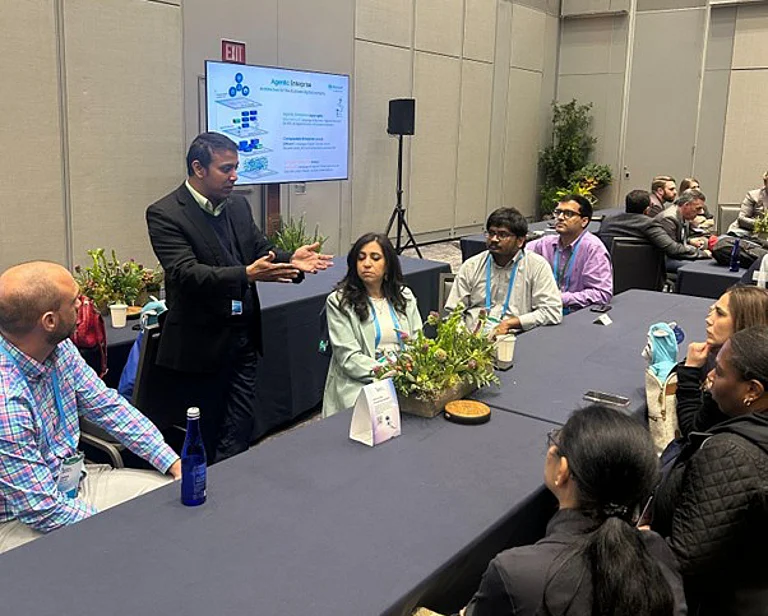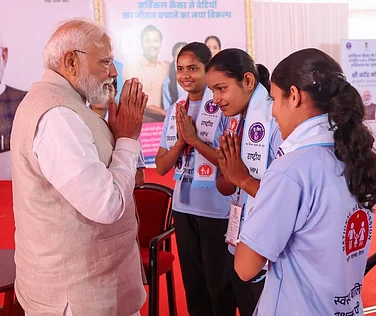As obesity rates continue to climb worldwide, bariatric surgery is rapidly gaining recognition as a critical and effective treatment for those facing life-threatening complications related to excess weight. Doctors across the country are gearing up to perform these complex, life-saving procedures with increasing frequency.
Last week, a 44-year-old woman weighing 146.5 kilograms and suffering from heart failure, liver cirrhosis, and progressing kidney failure was given a new lease on life by doctors at the All India Institute of Medical Sciences (AIIMS), New Delhi. Rinki, a resident of Sangam Vihar, fell into the category of super-super obesity with a Body Mass Index (BMI) of 80.4 — a level linked to numerous life-threatening complications.
“Rinki’s weight had been steadily increasing for over 12 years. When she first visited AIIMS about a month ago, she was wheelchair-bound and struggling to breathe. Her condition was critical, compounded by severe sleep apnea, hypertension, type 2 respiratory failure, a prior heart attack, and liver cirrhosis. At the time, she was on 90% ventilator support and undergoing CPAP therapy,” explained Dr. Manjunath Maruti, Additional Professor and Bariatric Surgery expert at AIIMS.
Obesity was identified as the root cause behind her multiple organ failures. The medical team performed a complex and high-risk sleeve gastrectomy surgery, which not only helped reduce her obesity but also significantly improved her kidney function, halting the progression of kidney failure.
Highlighting the transformative potential of bariatric surgery, Dr. Pankaj Sharma, Director of General, Bariatric & Laparoscopic Surgery at Fortis Hospital Shalimar Bagh, described Rinki’s case as a powerful example of how timely surgical intervention can dramatically alter a patient’s health trajectory. “Bariatric surgery is not just about weight loss — it’s about offering patients a renewed lease on life. A woman with a BMI of 80.4 undergoing surgery at AIIMS is a testament to the critical importance of early, expert care.”
Dr. Sharma emphasized that morbid obesity is far more than a cosmetic issue—it is closely linked to diabetes, hypertension, heart disease, infertility, and a shortened lifespan. “When conservative methods like diet and exercise fail, bariatric surgery becomes a crucial, life-saving option. The ideal candidate typically has a BMI over 40, or over 35 with associated comorbidities.”
He stressed that early intervention is key: “Bariatric surgery not only supports weight loss but can reverse or improve obesity-related diseases, enhance mobility, and significantly improve quality of life. Delaying surgery until complications worsen only increases risks and prolongs recovery.”
Similarly, Fortis Hospital’s bariatric surgeon Dr. RK Singh recently performed a complex weight-loss surgery on a 165-kilogram patient with a BMI over 50 and multiple life-threatening comorbidities including type 2 diabetes, uncontrolled hypertension, and obstructive sleep apnea requiring CPAP therapy. Operating on a super-obese patient with compromised physiological reserves required months of meticulous pre-operative preparation, including nutritional counseling, psychiatric assessment, and thorough cardiac and pulmonary evaluation.
“This was definitely a multifaceted challenge,” said Dr. Singh. “Beyond the surgical complexity, anesthesia safety was our prime focus. The patient’s smooth awakening without respiratory distress validated our specialized perioperative protocols for super-obese patients. This success speaks volumes about the power of precision, teamwork, and experience.”
The growing number of successful bariatric surgeries like these reflects a broader trend. According to a recent study presented at the American Society for Metabolic and Bariatric Surgery (ASMBS) 2025 Annual Scientific Meeting, more people worldwide are opting for bariatric surgery to reclaim their health and improve quality of life. The study found self-esteem scores more than doubled within one year after surgery, increasing from an average of 33.6 to 77.5 on a 0-to-100 scale. Notably, patients with the greatest weight loss saw the largest gains in self-esteem, regardless of age, gender, race, or type of surgical procedure.
“More people are recognizing bariatric surgery as a powerful tool not just for weight loss, but for restoring health and self-confidence,” said Dr. Justin Dhyani, co-author of the study. “Understanding and addressing weight stigma and psychosocial factors is essential to comprehensive patient care.”
With obesity affecting over 40% of adults globally and linked to numerous serious health risks, bariatric surgery is increasingly regarded as a critical, sometimes lifesaving, intervention. Yet stigma and psychological challenges remain significant barriers. “This research highlights the urgent need for compassionate, stigma-free care that empowers patients to make informed health decisions,” said ASMBS President Dr. Ann M. Rogers.



























